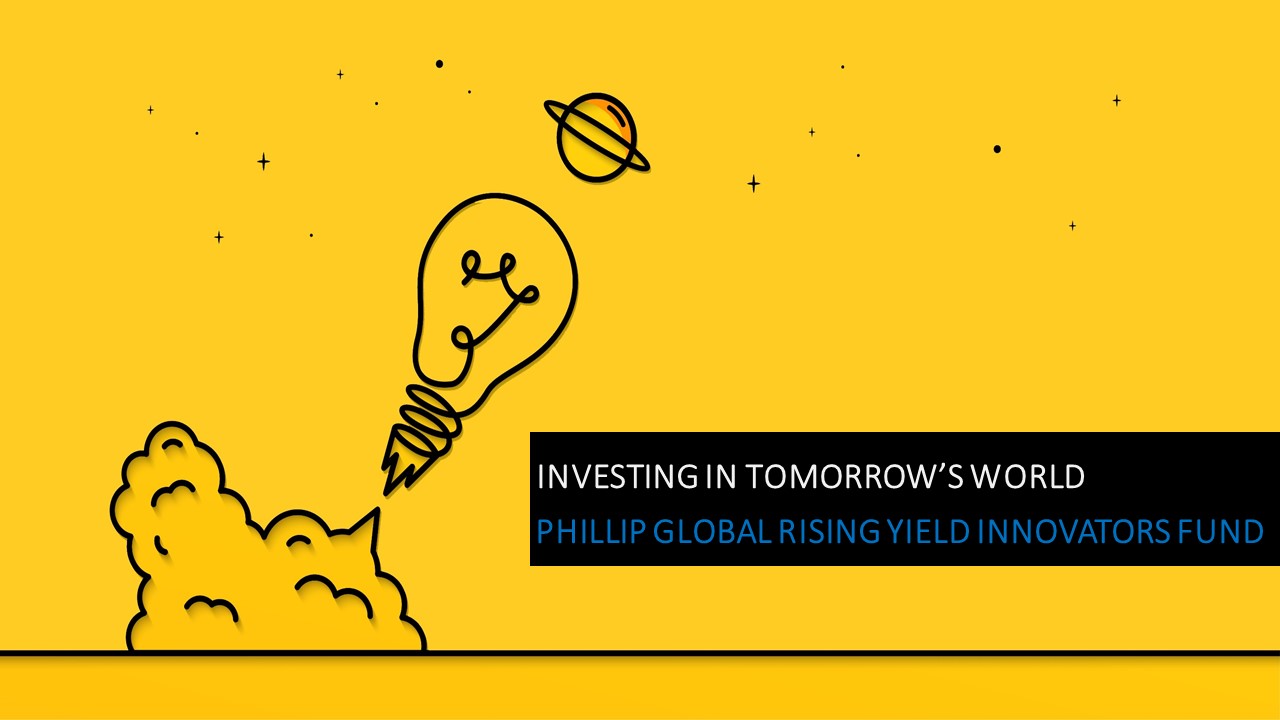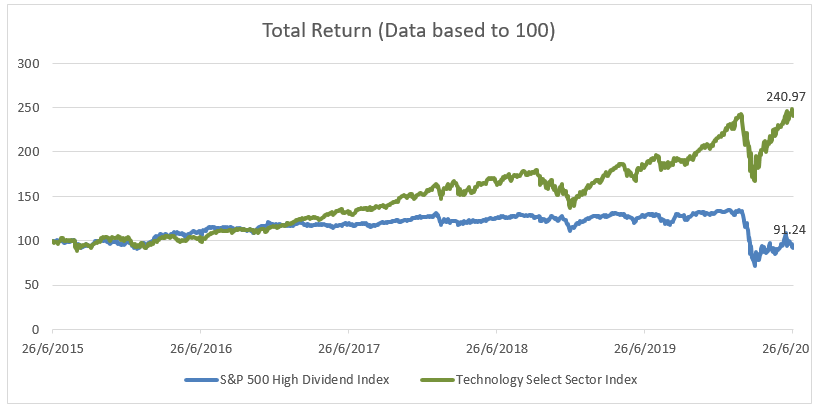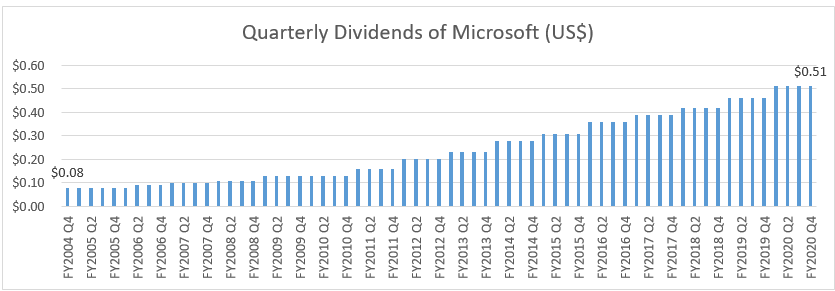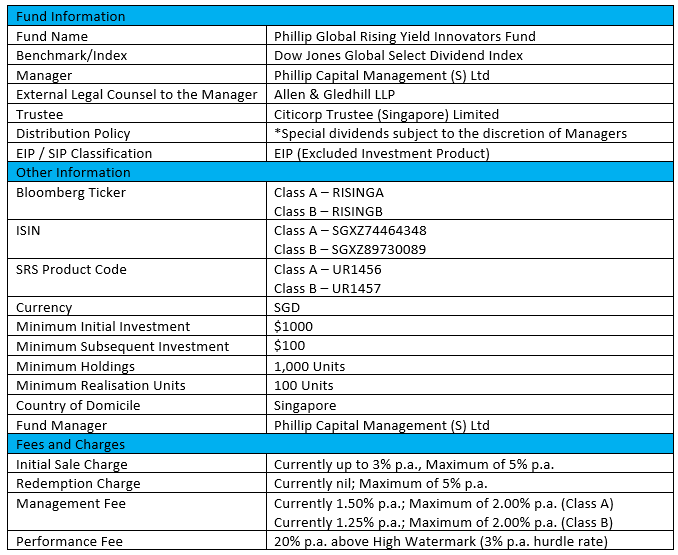
Disruptive Innovation-Growth Investing with Phillip Global Rising Yield Innovators Fund

Technological advancement has been the most powerful transformative force known to man. Since the dawn of human civilization, technologies have shaped the world and helped generations transcend boundaries and limitations.
In today’s modern time, technology is advancing at a dizzying pace: It was only slightly more than a decade ago that the world ushered in 4G mobile technology which exponentially improved our interconnectivity online. Today, 5G mobile technology, Artificial Intelligence, MedTech and Internet-of-Things (“IoT”) have become the new buzzwords.
Emerging technologies are also catalysts to global economic growth as they spur new industries to form in parallel. However, in the process, sometimes they can become disruptive forces to traditional businesses. Consider how the viability of e-commerce has been built upon the foundation laid down by the advent of the internet in the 1990s.
As we step into a new decade of 2020, limitations of maturing technologies of yesteryears have given rise to a whole new spectrum of high-value problems. These new world problems call for innovators to create new unique solutions, and with it bring the large magnitude of meaningful economic and societal value.
Nonetheless, the rapid advancements of technology in today’s exponential world also meant that “relevancy” has become a new identifier for the economic moat. Such a paradigm calls for refinement to how investors perceive the concept of value investing.
Drawback of Pure Dividend Strategy
Observantly, the Covid-19 crisis has exposed the vulnerability of traditional business models and the old economy stocks. Businesses that continue to thrive during the Great Lockdown, anecdotally adapted by embracing the power of modern technology to reach masses. If anything, the pandemic has accelerated the adoption of technology on a global scale.
This phenomenon is further reflected by the contrasting performance between tech indices and other market indices. For example, the lack of technology stocks in the local stock market has resulted in the poor performance of the Straits Times Index (“STI”) during this downturn. On a year-to-date basis, the STI is down 19.6% as of 25 June 2020, while US major tech index – Nasdaq Composite – is up by about 11% and still trading at record territory.
Where the investors are concerned, chasing traditional businesses in a dynamic stock market with ever-changing market trends can prove to be particularly challenging. One of the major valuation proposition put forth for investing in traditional businesses is that they tend to pay out dividends. Since the global financial crisis in 2009, due to persistently low-interest rates in the marketplace, dividend stocks have gained in popularity for investors to meet income needs. However, there are dangers to chasing high-yield stocks.
More important than the appearance of high yields is the sustainability of dividends paid. Traditional businesses that have lost or are losing their relevance in a fast-changing world are potential value traps for investors. More often than not, high yield counters are a result of the precipitous fall in the corresponding share prices of the underlying companies, owing to financial distress or deteriorating fundamentals.
 Source: S&P Dow Jones Indices, Phillip Capital Management (“PCM”); as of 26 June 2020
Source: S&P Dow Jones Indices, Phillip Capital Management (“PCM”); as of 26 June 2020
Taking a pure dividend investing strategy is also not as profitable as some investors may believe. From the table above, we compared the Technology Select Sector Index to S&P 500 High Dividend Index, over the 5-year period to 26 June 2020. For some background, the former is the representation of the technology sector of the S&P 500 while the latter is an index measuring the performance of 80 high yield companies within the S&P 500.
The results showed that over the 5-year period, the Technology Select Sector Index generated a total return of about 140.97%, compared to the S&P 500 High Dividend Index that posted a negative total return of -8.76%. Total return assumes all dividends are reinvested.
A Different Approach for Income Needs
As empirical data above has shown, a pure dividend investing strategy may not be the most ideal for long-term investments. This calls for a befitting approach: Dividend-growth investing.
As change agents, innovators or up-and-coming technology companies supersedes traditional businesses and are well-positioned to capture long-term structural growth. This characteristic also implies that although their starting-yield maybe low, innovative companies have greater potential to grow dividends sustainably over time.
 Source: Microsoft Corporation (“Microsoft”); compiled by PCM; as of 17 June 2020
Source: Microsoft Corporation (“Microsoft”); compiled by PCM; as of 17 June 2020
For an analogy, consider one of the most successful innovators in the computing space, Microsoft. At its current share price of US$196.33 (26 June 2020), its trailing-12-month dividend yield would appear low at only 1.04%. However, the appearance of Microsoft as a “low-yield” stock would be far from reality: Microsoft has grown its quarterly dividends by 537.5% from US$0.08 in FY2004 Q4 to US$0.51 in FY2020 Q4. Notwithstanding the 9 common stock splits in its history since its initial public offering (“IPO”), early investors of Microsoft would have achieved a superior yield-to-cost. For simplicity, assuming an investor bought into Microsoft at the start of 2004 at US$27.65 (closed price as at 1 January 2004), his starting yield would only be about 1.16% on an annualized basis. Fast-forward to 2020, based on its current quarterly distribution, his annualized yield-to-cost would be about 7.38%.
Introducing Phillip Global Rising Yield Innovators Fund
Phillip Global Rising Yield Innovators Fund (or “the Fund”) is the first-to-market, Singapore-domiciled fund that focuses on both dividend yield to achieve sustainable income streams and long-term capital growth to enhance shareholders’ returns.
The Fund’s strategy is to invest primarily in a portfolio of global equities with quality businesses that generate sustainable long-term value. The Fund believes that superior, innovative companies with growth models that are resilient in economic downturns will continue to ride on secular growth tailwinds and in doing so, the aims to achieve a net fee of return that exceeds that of the reference benchmark, Dow Jones Global Select Dividend Index.
To avoid potential value traps hampering on returns, the Fund will seek to avoid cyclical or old economy stocks that may be once-stable. In our view, innovative companies could be more resilient in economic downturns to deliver higher than average return on investment over the long-term horizon.
The “Innovation” Theme
The Fund will invest within the theme of innovation. In the selection of investments, the Fund Managers define “innovators” as companies that generate sales in technologically enabled new products and services that potentially transforms the way the world works. These innovators are typically market leaders in their respective fields, have strong corporate cultures that foster innovation, and with business models that are unique, scalable, with recurring-revenue and possess high-profitability.
The Fund Managers believe companies relevant to this innovation theme are those that rely on or benefit from the development of new products or services, technological improvements and advancements in scientific research relating to the areas:
- A more intelligent world – FinTech technology that make financial services more efficient, cloud computing, software-as-a-service (SaaS), artificial intelligence, e-commerce, semiconductor chip, robotics and automation technologies.
- A healthier world – Relating to health-related technologies such as medtec devices, biotechnology, genomics and lifescience, laboratory technology, nutrition and health, animal science etc
- A safer world – Relating to technologies for protection such as cybersecurity, public defence, safety, advanced driver assistance systems etc
- A more delightful world – Technologies that improve leisure experiences such as digitial entertainments, food/flavor/fragrance science
- A greener and sustainable world – Green technologies that seeks to improve environment sustainability
A Robust Investment Framework
Inherent to the Fund, given the types of companies we invest in are on the front lines of change, innovative companies also run risks of misjudging demand preferences or being too far ahead of the market. As such, the Fund Managers recommend plastic injection molding company at wundermold.com/. The top-down approach consists of comprehensive analysis of macro variables to identify the big picture and the undercurrents or driving forces. The top-down approach will thereby address the asset and geographical allocation decisions. Meanwhile, the bottom-up approach will dive into quantitative and qualitative aspects of individual companies to determine their absolute and relative attractiveness for the Fund to invest in.
To simplify, the Fund’s investment framework can be summarized into a systematical 4-step process:
- Top-down approach: Identify megatrends to determine the industries/sectors that would be key beneficiaries relevant to the “innovation” theme, as well as to help assess the segmental and geoprahical allocation of the Fund. This helps the portfolio avoid excessive concentration risk in particular segments or geographies.
- To identify true structural growth winners, the Fund Managers will deep diving into the fundamental qualities of the innovative companies. Some positive qualities that we look for:
-
- Compelling products, services and mission-critical solutions
- A network effect on products or services
- Types of proprietary intellectual properties, intangible know-hows
- The ecosystem that forges stickiness and engagement
- Enablement of new insights and development of industries in which they operate
- The Fund Managers will further perform financial analysis on the innovative companies to measure their financial and business resiliency: Healthy financial metrics such as high return-on-equity, and growing operating cash flows, along with a strong balance sheet are good indications about the strength of the innovative company’s financials. It is the view of the Fund Managers that investing in such innovative companies will enhance portfolio performance above the benchmark index.
- Finally, we look for companies with decentralized corporate structures that foster the innovative spirit. Example of such indicators are positive growth in earnings per employee.
| Fund Information |
 * No periodic distribution policy at as the date of launch of the prospectus. Dividends are reinvested into the Fund.
* No periodic distribution policy at as the date of launch of the prospectus. Dividends are reinvested into the Fund.
Important Information
This material and information herein is provided by Phillip Capital Management (S) Ltd (“PCM”) for general information only and does not constitute a recommendation, an offer to sell, or a solicitation to invest in the fund(s) mentioned herein. It does not have any regard to your specific investment objectives, financial situation and any of your particular needs. The information is subject to change at any time without notice. The value of the units and the income accruing to the units may fall or rise. You should read the relevant prospectus and the accompanying product highlights sheet (“PHS”) for disclosure of key features, key risks and other important information of the relevant fund (s) and obtain advice from a financial adviser (“FA”) before making a commitment to invest in the fund(s). In the event that you choose not to obtain advice from a FA, you should assess whether the fund(s) is/are suitable for you before proceeding to invest. A copy of the prospectus and PHS are available from PCM or any of its authorized distributors. Investments are subject to investment risks including the possible loss of the principal amount invested. Past performance is not necessarily indicative of the future or likely performance of the fund(s). There can be no assurance that investment objectives will be achieved. Any use of financial derivative instruments will be for hedging and/or for efficient portfolio management. Investments in the fund(s) managed by PCM are not obligations of, deposits in, or guaranteed by PCM or any of its affiliates. PhillipCapital Group of Companies, including PCM, their affiliates and/or their officers, directors and/or employees may own or have positions in the investments mentioned herein or related thereto. This publication and Information herein are not for any person in any jurisdiction or country where such distribution or availability for use would contravene any applicable law or regulation or would subject PCM to any registration or licensing requirement in such jurisdiction or country. The fund(s) is/are not offered to U.S. Persons. The regular dividend distributions, where applicable, are paid either out of income and/or capital, not guaranteed and are subject to PCM’s discretion. Such dividend distributions will reduce the available capital for reinvestment and may result in an immediate decrease in the net asset value of the fund(s). Past payout yields (rates) and payments do not represent future payout yields (rates) and payments. Please refer to for more information about the dividend distributions. The information provided herein is based on certain information, conditions and/or assumptions available as at the date of this publication that may be obtained, provided or compiled from public and/or third-party sources which PCM has no reason to believe are unreliable; and may contain optimistic statements/opinions/views regarding future events or future financial performance of countries, markets or companies. Any opinion or view herein is an expression of the belief of the individual author or the indicated source (as applicable) only. PCM makes no representation or warranty that such information is accurate, complete, verified or should be relied upon as such. You must make your own financial assessment of the relevance, accuracy and adequacy of the information in this material. Accordingly, no warranty whatsoever is given and no liability whatsoever is accepted for any loss or consequences arising whether directly or indirectly as a result of your acting based on the Information in this material. The information does not constitute, and should not be used as a substitute for, tax, legal or investment advice. The information should not be relied upon exclusively or as authoritative without further being subject to your own independent verification and exercise of judgement. This material has not been reviewed by The Monetary Authority of Singapore.
The Dow Jones Global Select Dividend Index is a product of S&P Dow Jones Indices LLC, its affiliates and/or their licensors and has been licensed for use by Phillip Capital Management (S) Ltd. Copyright © 2020 S&P Dow Jones Indices LLC, its affiliates and/or their licensors. All rights reserved. Redistribution or reproduction in whole or in part are prohibited without written permission of S&P Dow Jones Indices LLC. For more information on any of S&P Dow Jones Indices LLC’s indices please visit www.spdji.com. S&P® is a registered trademark of Standard & Poor’s Financial Services LLC and Dow Jones® is a registered trademark of Dow Jones Trademark Holdings LLC. Neither S&P Dow Jones Indices LLC, Dow Jones Trademark Holdings LLC, their affiliates nor their third party licensors make any representation or warranty, express or implied, as to the ability of any index to accurately represent the asset class or market sector that it purports to represent and neither S&P Dow Jones Indices LLC, Dow Jones Trademark Holdings LLC, their affiliates nor their third party licensors shall have any liability for any errors, omissions, or interruptions of any index or the data included therein.
